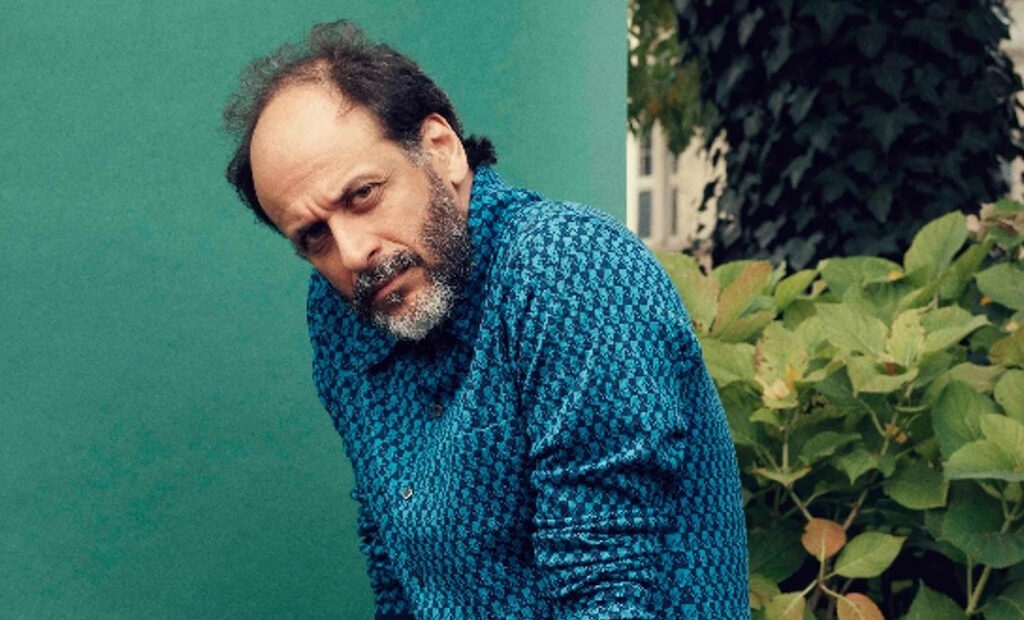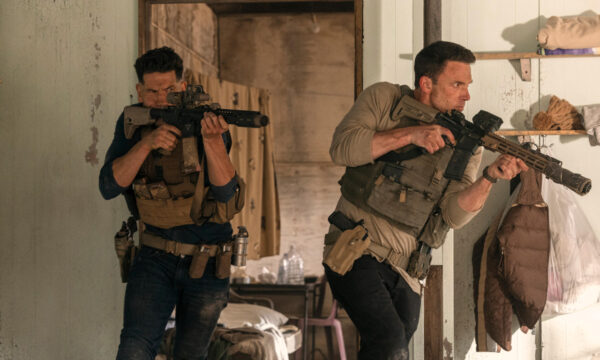Zurich Film Festival: A masterclass with filmmaker Luca Guadagnino

Luca Guadagnino’s schedule is jam-packed these days. After his latest feature, Bones and All, celebrated its world premiere in Venice, the director jetted off to Colorado to present the film at Telluride, then returned to the Lido to collect the Silver Lion for Best Direction. On the brink of another trip to the United States to screen the sought-after cannibal romance at the New York Film Festival before heading back to Europe to attend the BFI’s special presentation in London on 8th October, the Italian maestro stopped by Zurich. The day after being honoured with the Swiss festival’s “A Tribute to…” award, Guadagnino shared insights about his work in a moderated masterclass.
He thinks it is strange that since he turned 50 last year he started to receive honorary awards, because his lifetime achievement isn’t over: filmmaking is something he is still “in the middle of doing”. Overall he likes the recognition that awards bring with them, but when asked what kind of feedback he values about his work, Guadagnino doesn’t want to chose between critics and public audiences. What he cares for most are readings of his work that open his eyes to things he initially didn’t think about: “It’s a very enjoyable experience for me to see something that I haven’t seen through the perspective of someone else – also not necessarily a validation, it could be a critique” He considers it important to note that he started out as a film critic, and as such endorses “the art of the film critic.”
Conversation soon turns to Bones and All, the director’s first feature shot on American soil. He muses about the perception of the United States and its images – “The United States exists as a place of the imagery as much as it exists as a real place” – therefore he sees a danger for filmmakers from abroad to “reflect on the landscape of America through the idea of the landscape of America that we have been nurtured through the imagery that we’ve been sold like dope.”
In order to avoid falling into this trap, he turned to inspiration from directors of the 1930s and 40s, who immersed themselves in the new environment. “Fritz Lang was a titan of form,” Guadagnino says, “He was making colossals here, yet his his career in Hollywood went on to become almost anonymous, immersing himself into the province of America.”
He lists Scarlet Street as an example, and mentions Jean Renoir taking a similar route, “These directors who could be maximalist in their countries, they became minimalist in America.”
Guadagnino’s approach was to be at the same height of the people and try to adapt his gaze “to the gaze of the characters in the given places and circumstances.”
When asked about the landscape only turning “romantic” when his protagonists reach Nebraska, he reins in a little. It is a strange romanticism, as it is also the environment of Lee (the character played by Timothée Chalamet) spurting out his pain. “That moment, for me, it’s the most graphic. The most ‘horror’. And yet it’s the most tender and romantic.”
The moderator falters for a second at this contrariness. There are details of violence in Lee’s speech, but most audiences would recall different scenes when asked for the film’s “graphic” horror moments. It doesn’t shy away from its depiction of cannibalism after all – which leads to the next question: what do you tell [actors] who have to [play] cannibals? “We never tackled the concept with them, that wasn’t the point.”
Guadagnino reveals the character-work he focused on instead: “[Maren] was abandoned. She was oblivious to the identity she carried with herself and within herself. The unconscious was moving very strongly within her. She had to feel a sense of belonging.” Whereas for Lee it was about having faced the brutality of his nature and keeping it secret.
The cannibalism was treated matter-of-factly: a pathologist was interviewed by one of Guadagnino’s research assistants; they learned that biting into a body takes a lot of effort as the skin is quite thick. He gestures that it was about chewing, rather than tearing away.
In his acceptance speech the night before, Guadagnino thanked the people who work with him on his films, whom he refers to as family. In the masterclass he shares that, like family, he doesn’t enjoy being around them all the time, often finds shooting stressful and uncomfortable, and that his favourite part about the process is the editing.
Reminiscent of the 67th Venice Film Festival, where both directors sat on the jury, he relays the wise words of Quentin Tarantino: “Choosing the actors is the actual act of authorship from a director.” But casting is also full of crushing heartbreak: “You think that actor in that role is going to be amazing, so you send the script, they are very happy to receive it and then they say, ‘No, I’m passing, because I don’t see myself in it.’ It’s like being rejected in a love story.”
When asked about having to find the right combination of actors, Guadagnino says he doesn’t believe in chemistry tests: “The only chemistry has to be in the mind of the director towards his actors. If you see the couple, the groups, that’s it – then, as a director, you can bring them together.”
He reveals that most projects choose him, rather then it being the other way around (A Bigger Splash, Call Me by Your Name, We Are Who We Are, Bones and All), but for Suspiria it was different because of the way Dario Argento’s movie stuck with him since he was a teenager: “It became an obsession to the degree, in which you want to own it. I thought, ‘I’m gonna own this movie by making my own version of it’.”
As much as he loved Argento’s film, he felt it was missing the unheimlich (uncanny) Freud described, as well as an awareness of the time and place it was set in. He raves about Fassbinder’s short film in Germany in Autumn.
When asked about having a signature, his own style, Guadagnino thinks it would be boring “to have a style and to replicate it over and over. It’s all about the story of the movie, the characters the context. I mean… I did this movie and then I did another movie last spring set in the world of tennis. Those let’s say six leading characters – three and three – they couldn’t be more different and everything couldn’t be more different”
He says that he already used every tool in the box for his first feature, The Protagonists: “Done. When you spin the camera once, why [would] you want to spin the camera another time?”
When the floor opens up and the first question from the audience addresses the film’s cannibalism in relation to the allegations against Armie Hammer, an audible sigh goes through the room. The host looks as if he is about to intervene, but Guadagnino reluctantly replies, knowing that reports will reduce the event – if not his entire appearance at this festival – to the following words:
“Dave Kajganich, Teresa Park have been working on Bones and All from Camille deAngelis since the book was released many years ago, probably around the time in which we were shooting Call Me by Your Name. They were working on a movie to be directed by my fellow colleague and great director, Antonio Campos. Antonio decided not to go for it; that’s when Dave, who I’m very close to, gave me the script. And I loved the script. Any – how can I say? – correlation with these kind of innuendos and silliness? It’s preposterous!”
About the collaboration with Trent Reznor and Atticus Ross for Bones and All’s score, Guadagnino shares that he has been an admirer of theirs since Nine Inch Nails, and he considers their collaboration an achievement. “We we spoke a lot about the romanticism of the movie and the sense of belonging. My only direction was ‘I think it should be guitar and it should be extremely melancholic.’” He also reveals they are working together again on another movie.
To the “filmmakers in bloom”, as he calls them, who sit in the audience he imparts the following wisdom: “One is not to go to a film school. Secondly, is to make sure that there are fine kindred spirits to give a hand; build a group of people to work with. My third advice is to actually do it – because you can do it with a cell phone in a second. And, lastly, I would focus consistently for a while on documentaries before getting into narrative” – but not like Netflix documentaries, he hastily clarifies – “Frederick Wiseman documentaries.”
Selina Sondermann
Zurich Film Festival is on from 22nd September until 2nd October 2022. For further information visit here.
Watch the trailer for Bones and All here:























Facebook
Twitter
Instagram
YouTube
RSS